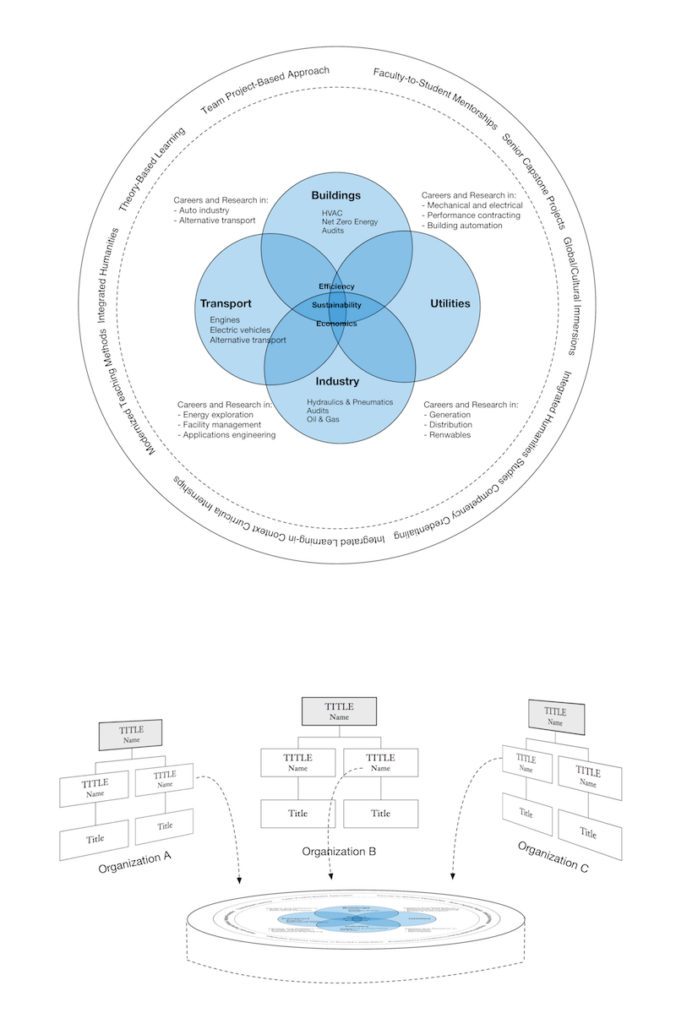Designing a New Major in Energy Systems Technology
Can you design a new major simply by recombining existing courses? Can we link and leverage our existing courses in new ways?
Yes. If you think differently.
Sometimes the pathway to transformation is more easily achieved by creating something new rather than attempting to “fix” something old.
Pfeffer and Sutton (1999) suggest that transformation can be achieved by (1) starting a new “something (new organization, sub-unit, partnership, etc.)” free of the constraints and history of the old something, (2) making it difficult to use the old ways and offer new ways of doing things, and (3) encouraging the questioning of precedent and the automatic reliance on the old way of doing things.
With those notions in mind, the Lab led a Design Team made up of faculty from the School of Engineering Technology to create a new program of study in Energy Systems Technology (EST). Taking to heart the notion of casting away old ways of doing things, our approach for developing the EST program of study charts a different path than traditional methods of developing new majors.
Rather than focusing first on resources needed to start a new major — an approach that often leads to deficit thinking and paralysis — Scott Hutcheson of the Lab led faculty to think about “linking and leveraging” existing assets.
To promote this thinking, Scott used the metaphor of a platform. We have found that the idea of a platform helps people transcend their narrow, tightly bounded thinking.
He launched the process with an appreciative framing question:
Imagine the Purdue Polytechnic’s School of Engineering Technology and its partners as a vibrant network and a national model for advancing research, innovation, and career development in energy systems. What does that look like?
The resulting Strategic Doing exercise led the faculty team to design the new major using existing courses. To guide the development, they designed the following platform. In this way, they designed a new major out of existing courses.
Simple, if you think, behave and do in new ways.


The Founder of the Lab at UNA and co-author of Strategic Doing: 10 Skills for Agile Leadership, Ed’s work has focused on developing new models of strategy specifically designed to accelerate complex collaboration in networks and open innovation. He is the original developer of Strategic Doing.
